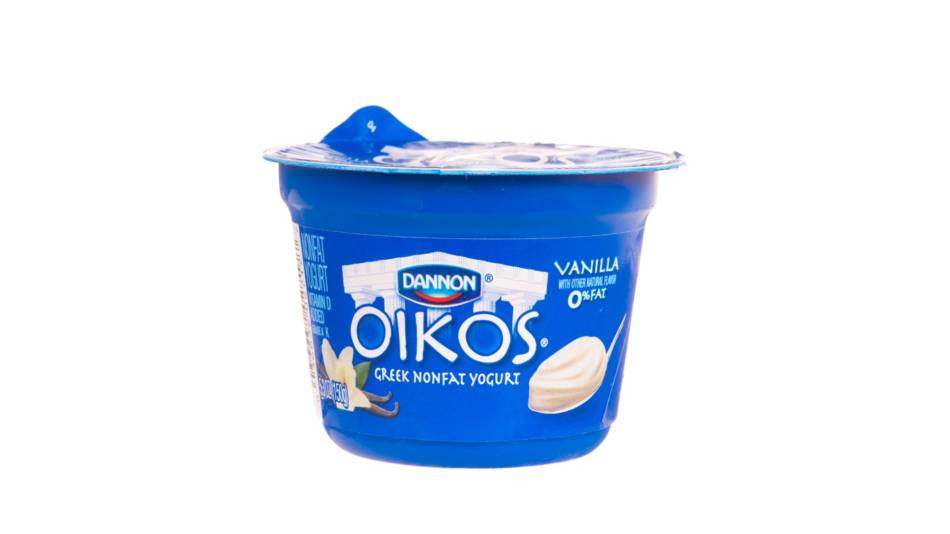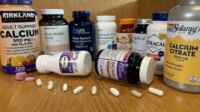
Answer:
Yes, Greek yogurt is an excellent good source of protein, providing 2 to 3 times the amount of protein as regular yogurt. In fact, a 200 gram serving (just under a cup) of Greek yogurt provides about 20 grams of protein — roughly 30% of the daily protein requirement for a sedentary adult and about 20% for an active adult.
The majority of the protein Greek yogurt is casein. The other well-known milk protein, whey, is more liquid, and it is removed in making Greek yogurt to create a thicker, dryer yogurt. Casein is absorbed more slowly than whey in the digestive tract. (For more about casein and whey see ConsumerLab's Product Review of Protein Powders, which includes our Top Picks among them.)
To see if the protein in Greek yogurt helps build muscle, college-aged men were recruited to perform resistance exercise training three days a week for 12 weeks during which they consumed, along with their regular diets, two to three servings daily of either Greek yogurt (200 grams per serving) or a carbohydrate pudding that was equal in calories but devoid of protein. Not surprisingly, those who ate the yogurt experienced greater increases in muscle size and strength and lost more fat than those who consumed the pudding (Bridge, Front Nutr 2019). Although this showed that Greek yogurt aids muscle production, it doesn't mean that Greek yogurt is any better or worse than other sources of protein, such as whey protein powder. Increasing protein from any source will help build muscle mass during resistance training.
Although Greek yogurt contains some sugar (about 5 grams per 200 gram serving), this about half the amount of sugar you would get from an equal serving of milk because some of the sugar is fermented in making yogurt, giving yogurt a slightly sour taste. Greek yogurt is an excellent source of calcium, although it provides a little less calcium than milk or regular yogurt because some calcium is lost during the straining process used to make Greek yogurt.
Also see our article, "Do I need to take a probiotic supplement if I eat yogurt every day?" to find out if eating Greek yogurt is a good way to boost probiotic intake.
Join today to unlock all member benefits including full access to all CL Answers and over 1,400 reviews.
Join NowAlready a member? Sign In Here.
Join now at www.consumerlab.com/join/













 ConsumerLab.com
ConsumerLab.com
May 09, 2019A CL reader asked us if there any health benefit to choosing whey protein powder over Greek yogurt as a source of protein. The answer is that it depends on what you're looking for.
As noted above, you'll get some natural sugar from Greek yogurt that you won't get with straight protein powder -- although you may also be adding sugar to protein powder if you drink it as a fruit smoothy. You'll get calcium with Greek yogurt but you'll also get a good amount of calcium with whey protein.
The whey in protein powder is absorbed faster than the casein in Greek yogurt, but its not clear if that makes much of difference.
Cost-wise, prices for both range widely by brand and merchant, but getting protein from Greek yogurt tends to be a bit more expensive than protein powder. A 200 gram serving of Greek yogurt providing 20 grams of protein costs about $1 to $2, while a 20 gram serving of straight whey protein costs about 55 cents to 85 cents -- as shown in our most recent Protein Powder Review ( https://www.consumerlab.com/reviews/protein-powders-shakes-drinks-sports/nutritiondrinks/#whatclfound).
Reply to this post…